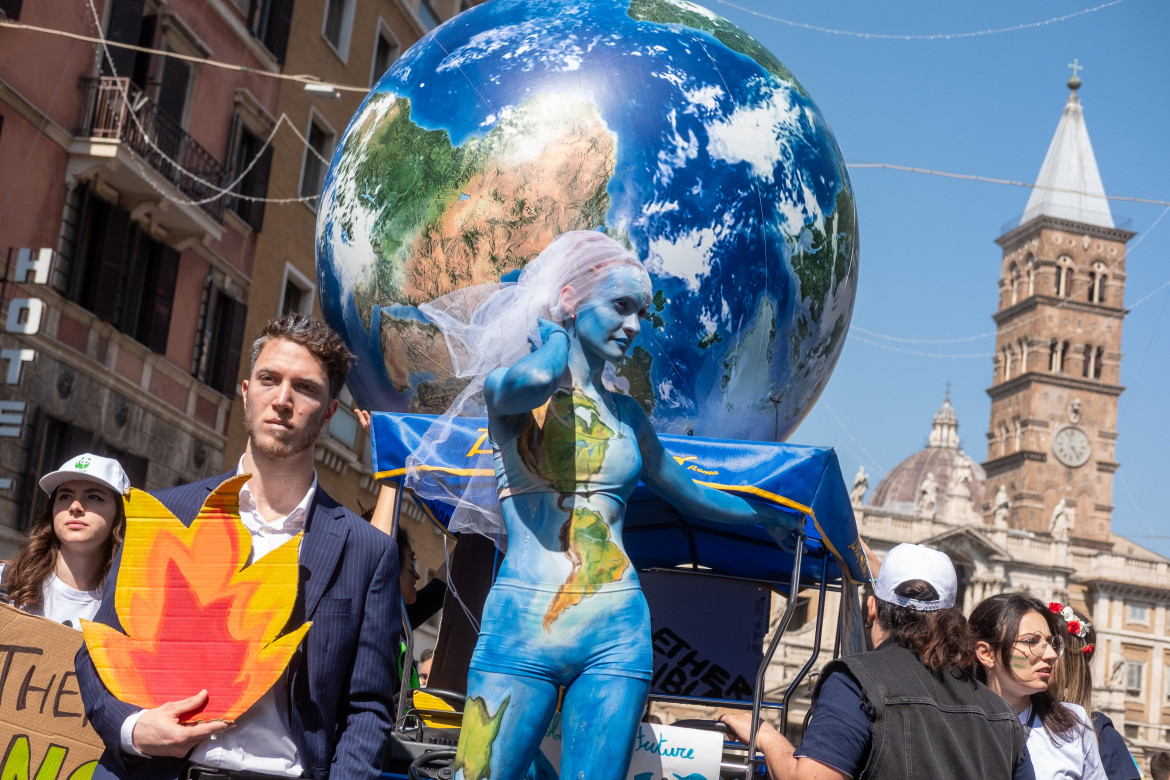Commentary
Draghi needs to intervene on clean energy because Cingolani is incapable
The goal of 60 GW of renewable energy by 2030 is possible, and it can be realized even earlier if the investments start with significant public initiatives.

At last, Cingolani has spoken out clearly in an interview, and so we find that all the puzzlement about what he has said and not said in the past can be explained by the fact that he, as Minister for the Ecological Transition, is to environmental policies like the proverbial fox in the henhouse.
It has become clear by now, because since he took office he has talked a lot, often off-handedly and in an ambiguous manner, but he has done very little: just consider that the simplifications he proposed after no less than two legislative decrees have left the situation virtually unchanged. Here are some examples.
It does not appear that the government, who is already a year late, has actually managed to send to Brussels the regulation plan for the seas that would allow companies that want to invest in off-shore wind power to do so (20 to 30 kilometers from the coast), while it must be highlighted that the authorizations in this case all depend on the government, and thus one cannot shift the blame to the municipalities and regions. Similarly, it seems that the government has not approved the minister’s proposal of a measure to finally give Terna the management decisions, while not the ownership, on hydroelectric plants of a total capacity of up to 7.6 gigawatts, an enormous amount that could stabilize the supply of electricity from renewable energy into the grid. On a related note: hydropower is often not even listed among renewable sources, yet there is still room for growth here, as demonstrated by the Calabrian municipality that restored a small hydroelectric plant to produce electricity. What is missing is a plan for a national efficiency project and new hydropower.
From Cingolani’s words, one can only draw the conclusion that he has no idea that Terna is building a major South-North power line to double the existing one, a choice that should be better evaluated to avoid the energy desertification of the industry in the South.
What was even more curious was the list of problems to be solved mentioned by the minister, which should be part of the government’s action program but instead seems to baffle him, as if it were not his job to resolve them.
The goal of 60 GW of renewable energy generation by 2030 is entirely possible and can be achieved even sooner, if the investments get off the ground, but public initiatives need to be focused on these goals. For example, some of the funds reserved for the so-called “110 percent” could also be allocated to solar panels, mandating their installation on new buildings, schools and public offices and giving incentives to private individuals who install them. If more needs to be done, the initiatives must also be consistent with this. The alternatives are to either go without gas entirely or continue to pollute and produce CO2 as before.
The government keeps failing to present a plan for energy savings in the industrial sector and is doing nothing to support national production in the renewables sectors as much as possible (while Enel has invested in solar panels in Sicily), with particular attention to batteries and microchips, which are European objectives.
To claim, as he did, that focusing on renewables would put us at the mercy of China is just confirmation of the poor level of initiative of this government. Furthermore, the minister’s amnesia about the NRP is surprising, which envisions 25,000 charging points for electric cars.
As the PNR Observatory, we have been proposing for months that the government should quickly convene a national conference to present a new energy/climate plan that would put together goals, resources and timetables for implementation in a clear manner. For crucial sectors of domestic industry, such as steelmaking, we need to reach the point of using hydrogen produced from renewables, which, as Snam has made clear, could be distributed using existing pipelines. However, now we find out that the minister is proposing using synthetic fuels (at Eni’s suggestion, perhaps?) to delay the end of internal combustion engines (a favor to car manufacturers lagging behind in the transition to electric?).
Now we can see why Minister Cingolani sided with the EPP to blast the European “Fit for 55” program, in support of car companies lagging on electric and Eni, interested in synthetic fuels.
We insist that Draghi must intervene to overcome the minister’s confusion and inaction, otherwise his own appeals in international forums – including very recent ones – that the looming crises (energy/grain) caused by the invasion of Ukraine should not overshadow the very serious climate crisis would be belied entirely.
Draghi should convene a national conference as soon as possible to present to the country the Italian government’s proposals for a new energy/climate plan that would be up to the current challenges and EU goals, to be built in a discussion with all stakeholders.
Originally published at https://ilmanifesto.it/se-draghi-non-interviene-cingolani-ci-lascia-in-mezzo-al-guado on 2022-06-17
